In this edition:
✍🏼 Best, Bored, Bad, Becoming - by Danu Poyner
🎙 Still Curious Podcast - From classroom to corporate with TESOL teacher and instructional designer Diego Boada
5️⃣ Links - Danu Poyner's 5 links for grokking Pixar
🍬 Snackables - assorted awesome links
--
📩 Subscribe to get the Grokkist Scholé Supplement in your inbox every two weeks.
✍🏼 Best, Bored, Bad, Becoming
Have you ever done someone else’s job for them because you got tired of waiting for them to do it, and then people kept asking you to do that job because they decided you’re good at it, but actually you find that job the most boring thing on earth?
Maybe you did that other person’s job for them because you can’t stand to see things done badly, or maybe it was just out of self-interest because it made your life easier to have it done. Whatever the reason, you might suddenly find yourself in a trap of misunderstood strengths and interests!
I know someone who got stuck being in charge of their department’s procedures and process diagrams for years because everyone thought ‘they like that stuff’, but really they hated it and only did it in the first place because they were tired of wasting hours in pointless meetings listening to people argue about what the process was.
Do not underestimate the lengths that curious and creative people will go to to avoid boredom and faff.
The strangest part of the misunderstood strengths and interests trap is that over time we can begin to convince ourselves that ‘I must enjoy doing that thing, because people keep telling me I’m good at it!’ So we end up doing more of it, when actually we’d much rather be spending our time becoming better at something we’re not good at yet. Sometimes years can go by while we watch our possibility space slowly narrow around us while wondering how we ended up here.
It's surprisingly easy to confuse skills with interests, but incredibly important to have clarity about the difference if we want to be focussed about our own personal growth.
I hold a basic belief that when we follow our interests, good things tend to happen. And if they don’t, at least it won’t be boring! So far I have found this philosophy to be a recipe for a life of ongoing adventure with few regrets.
I wondered what would happen if I actually plotted my strengths against my current interests on a simple chart, so I spent an hour or so the other week playing in my notebook doing just that. Here’s the result (I made a nice graphic of it so you don’t have to struggle with my handwritten scrawl). I'm calling it Best/Bored/Bad/Becoming, because who doesn't love memorable categories!
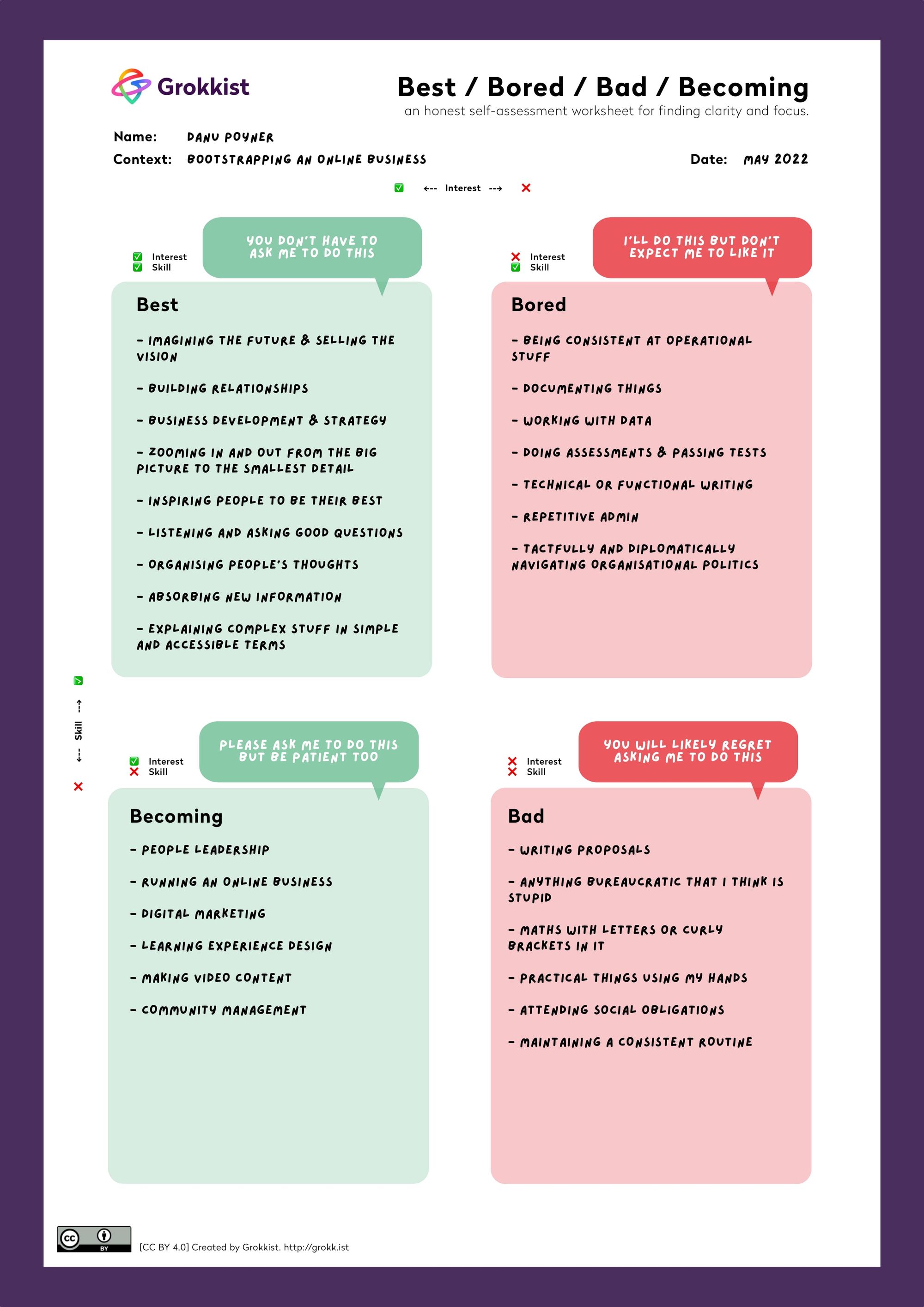
The Best box was easy because it’s the stuff that comes naturally to me – so naturally in fact that if I weren't the kind of person who enjoys doing this sort of exercise, I might fail to recognise my best stuff because it’s so invisible to me.
I could tell what to put in the Bored box because it’s the stuff I know is important but I always leave till last and procrastinate about endlessly. The Bad stuff I don’t even pretend to procrastinate about.
The Becoming box was harder. It’s stuff that I’m not good at (if I'm honest) but where I can imagine putting in enough time, effort and patience to get better, even if it turns out it’s never going to end up in my Best box.
I found this exercise quite liberating. It helped me answer important questions that had been on my mind about what I should focus on and where I’m better off getting help.
Unsurprisingly, I found it makes most sense for me to focus on my Best and Becoming boxes – the ones where I’m interested. For me, interest is what helps me sustain focus over time.
I admire people who have that particular brand of self-sacrificing discipline and doggedness that gets them out of bed to crawl through the mud at 5am even when they don’t want to. I recognise that they can achieve things I probably never will. But for me, no amount of advice about building habits through consistent discipline is going to work if I can’t find a way to stay interested the whole time.
How about you? You can download a blank template in case you want to do your own Best, Bored, Bad, Becoming exercise. Feel free to share your thoughts!
-Danu
🗓 Thur 2 June at 7pm-8pm (New Zealand time). CLICK HERE TO BOOK.
Members are spread across global timezones so it's impossible to accommodate everyone, but I will mix it up for future meetups.
🎙Still Curious Podcast
Featured Episode

Had a great time with Diego talking teacher transition, the intersection of instructional design and product management, and how losing his job in the pandemic changed his perspective.
Diego is a teacher through and through whose fascinating trajectory makes him well-placed to observe first-hand the intersection of many big trends in education.
In this episode
- Losing your job in the pandemic and reverse culture shock when moving from the US back to Colombia.
- Diego's journey from English language teaching to instructional design working in higher education and product management.
- How teaching expertise is valued in traditional education vs instructional design and edtech and what that means for teachers' freedom and creativity.
- Filling your cup and finding structure in uncertainty.
- Universal Design for learning.
5️⃣ Links
Grokkists share their five favourite links for grokking That Thing that lights them up
5 Links for grokking Pixar
by Danu Poyner
Danu is the founder of Grokkist and a massive Pixar nerd, as evidenced by the below photo from 2006 when he had more hair.
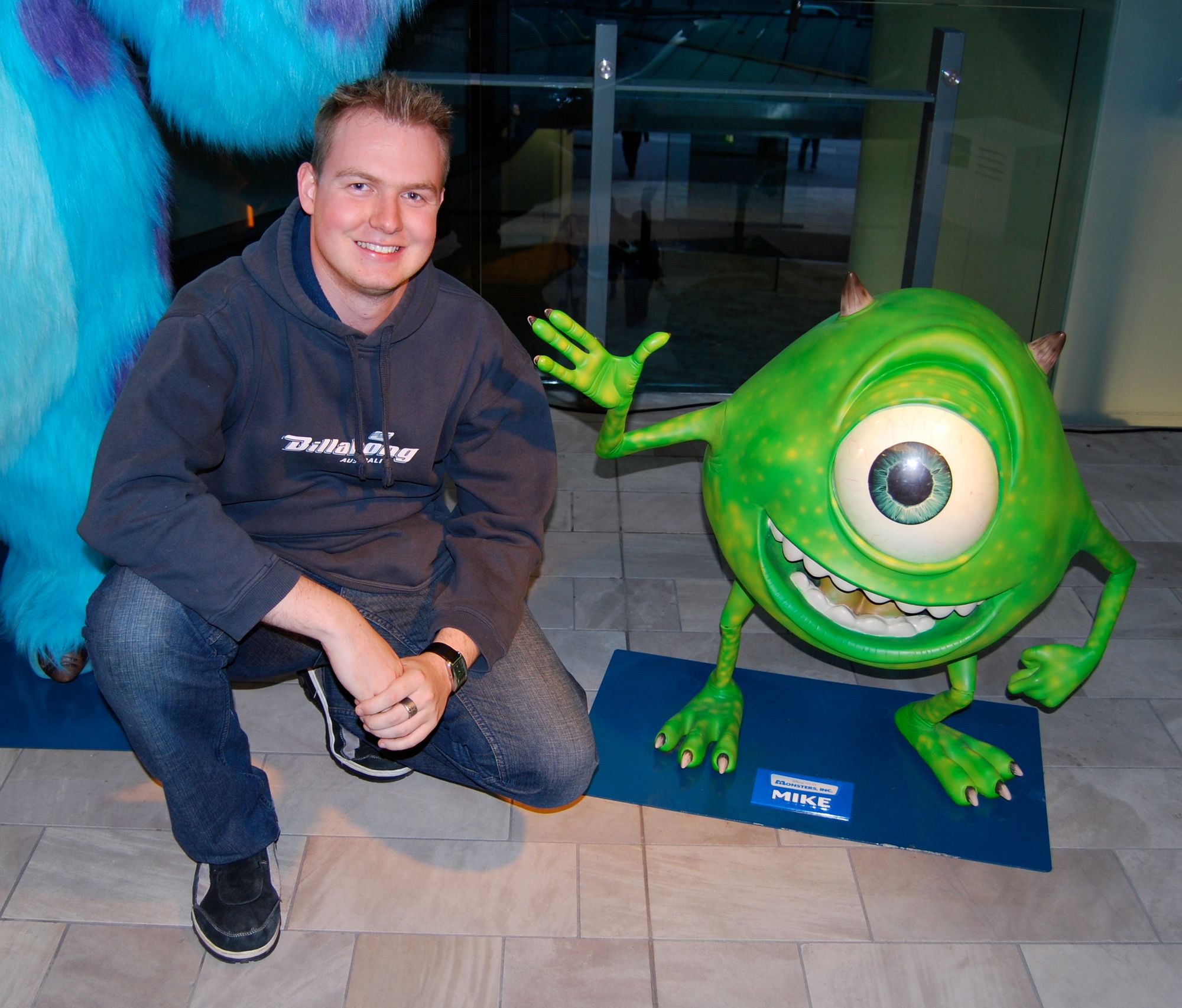
🔸 What gets me excited about Pixar
For me, Pixar sits at the intersection of creativity and technology in the most ambitious yet wholesome way imaginable. They strive to push the frontiers of what’s possible, and they insist on self-imposed standards of quality that others would rarely contemplate. Pixar created the category of 3D computer animation, and after 25 years they remain the indisputable leaders, continually pushing the boundaries.
Pixar believes 'story is king'. Their stories spark joy and high emotion in people (I'm looking at you, the-first-10-minutes-of-Up) in a way that feels earned, authentic and seldom manipulative. It strikes me there’s a lot we could learn from Pixar about emotion, communication and vulnerability in the way we deal with each other in everyday life.
I return to Pixar for inspiration not just in art and technology, but also in leadership, business and drawing out people's greatest potential. Pixar is art first, but it’s also big business and I’ve long been fascinated by how such creativity, originality and quality can be turned out so reliably and repeatedly.
Bottom line – there is no-one else like them, they bring joy to millions around the world, and they very nearly didn’t exist. In the kind of world we live in, I’m so grateful that they do.
More than anything, this 2-minute short animated film captures what Pixar is all about. It’s John Lasseter’s entry to the SIGGRAPH computer graphics industry conference in 1986. Not only is the film still remarkable in itself more than 35 years later, but you can clearly see everything Pixar would later become. Aside from featuring the now-iconic desk-lamp mascot, Luxo Jr encapsulates many of Pixar’s most consistent themes: instilling inanimate objects with human emotions; a spirit of playfulness, adventure and wonder; the importance of family; and ways of experiencing and processing grief, loss and change.
This stand-alone scene is Pixar at its absolute best. Up is a story about the finding, losing and recapturing the spirit of adventure. The opening scene is a self-contained montage that packs an emotional wallop. This short video essay breaks down what's going on and why it's so devastatingly effective.
Ratatouille is my favourite Pixar film. The plot is about a rat who wants to be a world-class chef, but it's really a story about creativity, what it takes for people to change their minds, and the idea that great talent can come from anywhere.
All these threads come together in the movie's climax where the dour food critic antagonist (voiced by the great Peter O'Toole) samples a meal made by the rat, and then delivers his judgment in the form of a review column.
It's one of the great speeches about art ever written and I'll wager more people understand what The Proust Effect is from watching Rataouille than from reading Proust.
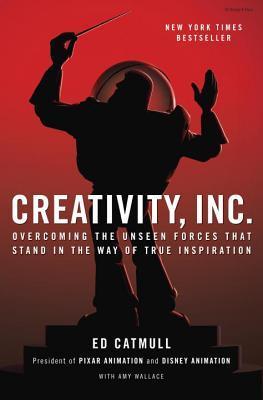
For me, the most incredible thing about Pixar is not that they have created more than 20 genre-defining movies. It's that they've intentionally cultivated an enduring culture of creativity that is able to reliably and predictably produce highly original works of art.
Institutionalised creativity seems like an oxymoron, but here it is. Many great institutions struggle to endure after their founder exits the scene – Ralph Waldo Emerson famously said that an institution is the lengthened shadow of one individual – but Pixar's culture seems to thrive and evolve, having now survived the death, departure or downfall of its original key personalities.
Much of this culture is undoubtedly due to the thoughtful and unassuming leadership of Ed Catmull, one of Pixar's original cofounders and a computer scientist, who served for a long time as President and CTO of Pixar and later as President of both Walt Disney and Pixar Animation Studios.
In this book, Catmull tells the story of Pixar's creative culture and the thousands of tiny decisions that bring it to life. The book contains deep reflections on how creativity works, what it needs to survive and the invisible odds that are stacked against it succeeding.
Pixar struggled for a while to complete movies without changing directors part-way through and bringing in one of the senior brains trust to rescue the project. My favourite Pixar movie Ratatouille happened this way. One of the most interesting parts of the book for me is where Catmull talks candidly about this problem and why it's so difficult to create a culture that renews itself even when you try very hard to do just that.

This is a much better book than the official Steve Jobs biography by Walter Isaacson. It is much more interested in dealing with the full complexity of Jobs' personality and the thread of events through which he learned, changed and grew over the years.
It's safe to say Pixar would not have existed without Steve Jobs. The creative team that would become Pixar needed a safe haven – an investor with vision and deep pockets to finance a promising but expensive and uncertain future. Jobs, humbled and restless after being fired from Apple, the company he co-founded, took on the challenge.
Despite all his achievements with Apple, it's always seemed to me that Steve Jobs at his best was the Steve Jobs of Pixar, where he was less directly involved in the creative output itself and more focussed on securing a safe space for that creativity to thrive, commercially and physically. The main part of the Pixar campus today is a building Steve Jobs himself designed.
This book covers Steve Jobs' involvement with Pixar as a side bet through to the eventual acquisition by Disney, and is the best book about Steve Jobs that you will find.
🍬 Snackables
Assorted awesome links
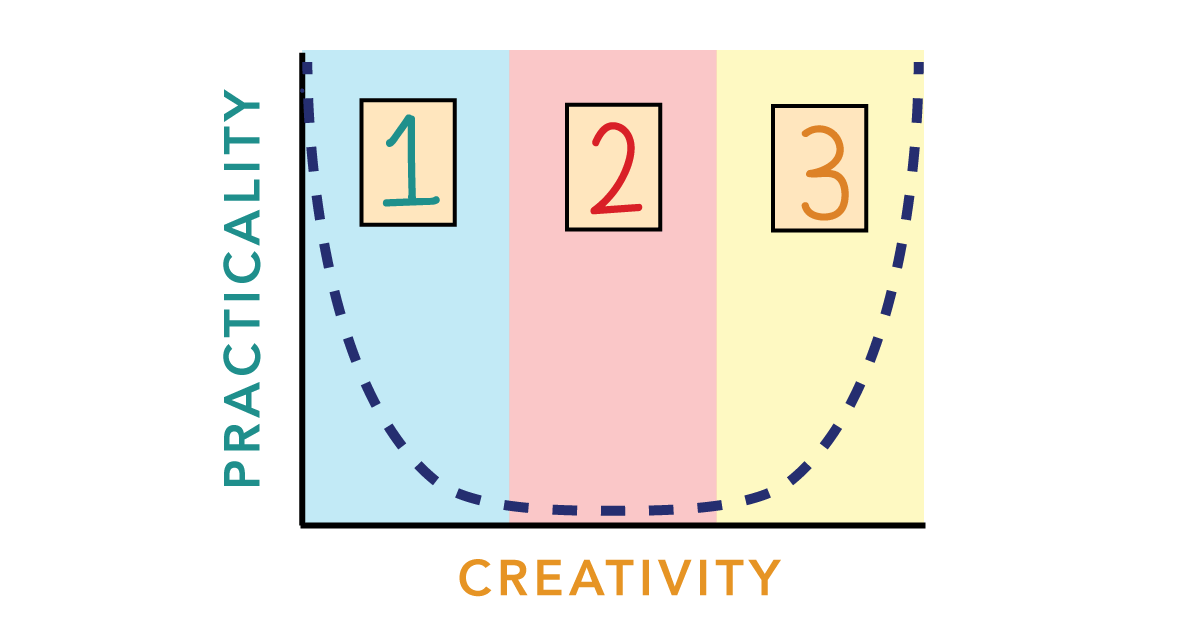
An incredibly clear and relatable guide to navigating the emotional and financial practicalities of pursuing creative projects of all kinds. One of the best things I've ever read about the real nature of creativity.
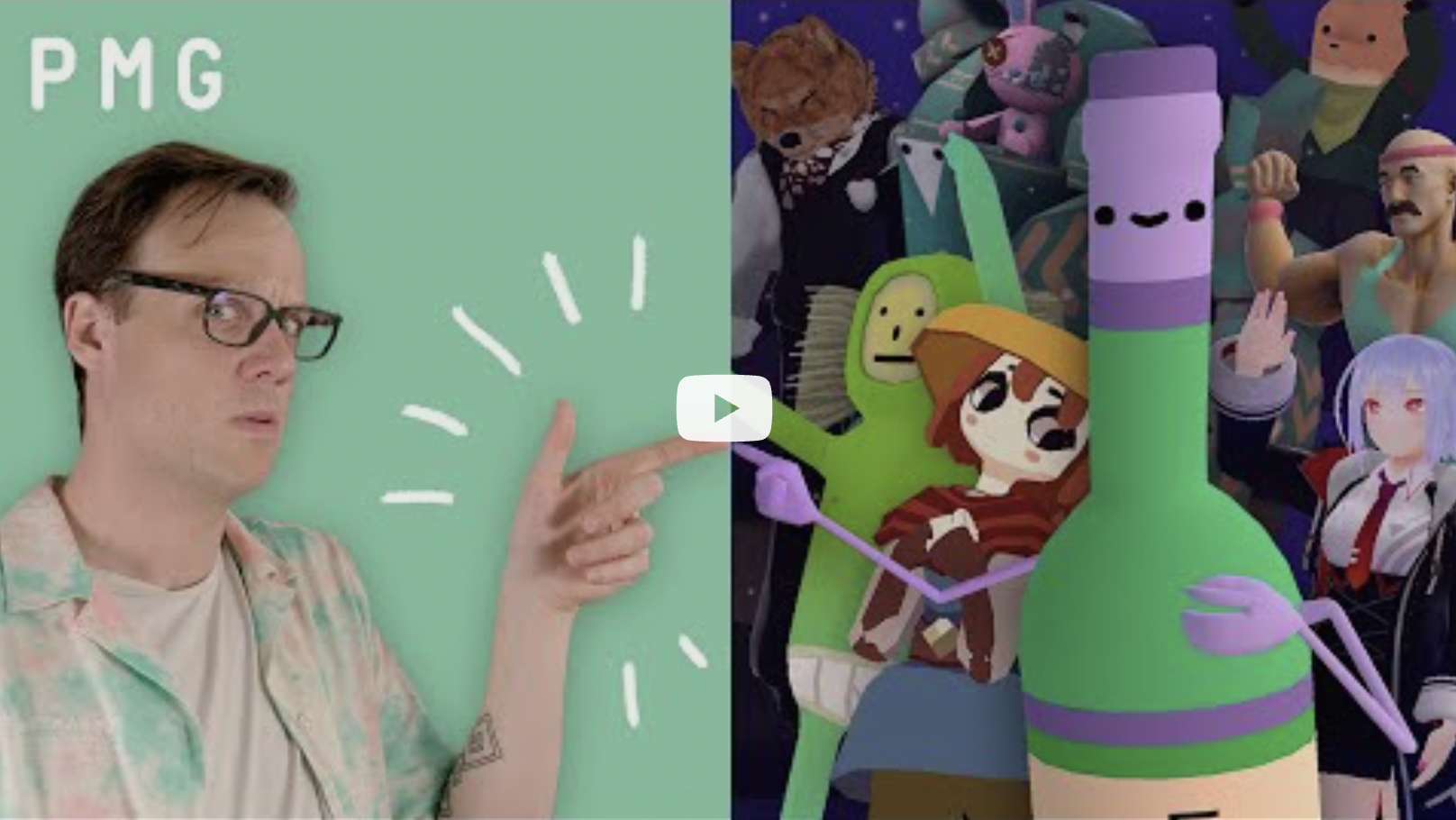
People Make Games hang out inside VRChat and it's glorious. Reminds me of the early wild west days of the pre-corporate internet. Watch and you will understand much more about 'metaverse' than you did at the start.
Ali Abdaal makes clear, concise and information-dense videos about productivity and how to navigate life stuff. This video is a good example and recommended for anyone who thinks their biggest problem is that they need to get more stuff done. Spoiler: you don't, and you probably can't.

Codenames is a word association party game that's easy to learn and difficult to master. Tremendously fun with high replay value. You will learn a lot about how your friends and family think. Available as a board game or online.

Vegepod is a raised garden bed greenhouse that's self-watering and protected from birds and pests by a permeable mesh cover. I've had one on my apartment balcony for about a year now and it's great for growing fresh veggies and herbs (gardening definitely belongs in my Becoming box). Don't miss the delightfully Aussie video tutorials.
About Grokkist
Grokkist™ is a self-funded social enterprise that celebrates the joy and excitement of sharing knowledge for its own sake, free and for the benefit of all.
We're building a community of learners, educators and practitioners who are curious, creative and committed to finding and designing learning experiences that set the soul of fire. Learn more at the Grokkist website.


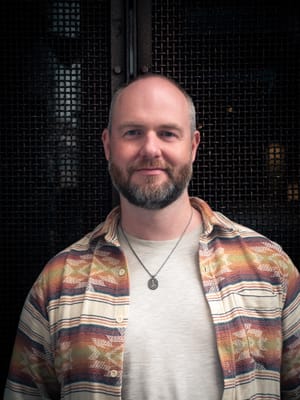

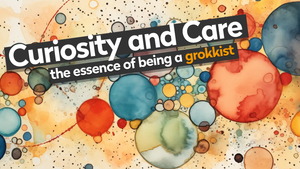






Member discussion